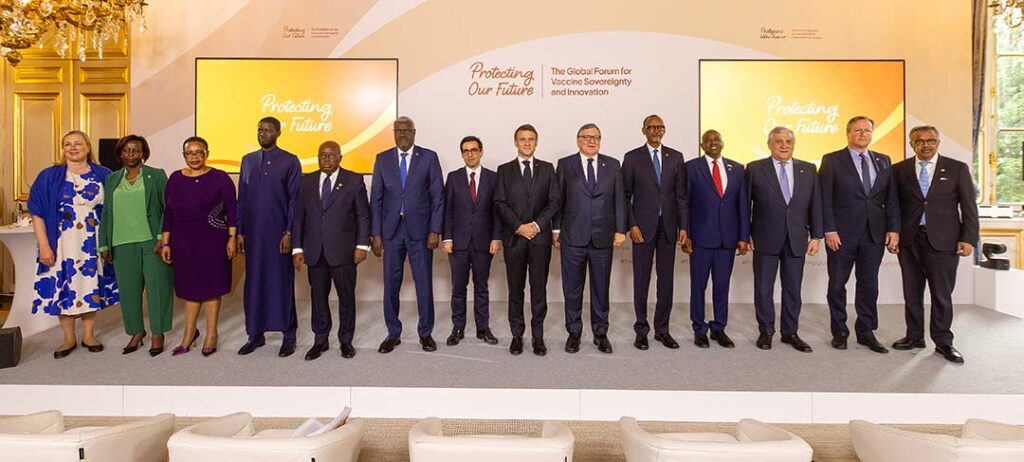Gavi says it will need $9b to protect 500 million children and save millions more

Gavi, the global Vaccine Alliance has outlined plans to protect 500 million children, and save over eight million lives more between 2026 and 2030.
At a Forum co-hosted by Gavi, the African Union and the French Republic, the Alliance said it is set to work to protect more children, against more diseases, faster than ever before. The Alliance has therefore unveiled its plans for the next five-years to achieve that.
And Gavi says it will need at least $9 billion in new donor funding for this work. In response, the United States of America, France, Spain, the private sector and philanthropy pledged early support worth at least $2.4 billion towards the goal.
According to a press release copied to Ghana Business News, Gavi says governments and donors have also committed to championing investment in the production of vaccines against cholera on the African continent.
The African Vaccine Manufacturing Accelerator (AVMA), an innovative financing mechanism which aims to foster regional vaccine production and vaccine sovereignty in Africa, with twelve sovereign and philanthropic donors committing to invest approximately $1.2 billion over the next 10 years was also launched.
Dr Sania Nishtar, CEO of Gavi, in the Alliance’s latest Investment Opportunity, outlined to participants how Gavi, if fully funded, could protect 500 million children in its next five-year strategic period, saving over eight million lives.
The announced targets meant that while Gavi vaccinated one billion children between 2000 and 2020, it is aiming to reach the next billion children in half the time.
The Alliance indicated that this acceleration through 2030 is critical at a time when countries combat the increasing risks of climate change, fragility, and economic instability – and in the last push towards the Sustainable Development Goals.
Fifty percent of the vaccines in Gavi’s portfolio help combat the twin threats of climate change and antimicrobial resistance, expand investments in outbreak and pandemic preparedness and response, and key vaccine programmes.
In Gavi’s next five-year strategy, it will aim to reach at least 50 million children with four doses of the malaria vaccine, and 120 million girls – saving 1.5 million lives – with the HPV vaccine.
The AVMA, designed by Gavi in close collaboration with the African Union and Africa CDC, will offer incentives to the region’s vaccine producers that successfully hit critical regulatory and supply milestones, helping to offset high upfront investment costs.
The release further said, 12 sovereign and philanthropic donors committed to provide approximately $1.2 billion to AVMA, including around $800 million from Team Europe partners.
“Over twenty years, Gavi has vaccinated a whole generation – over one billion children. Our message today to our donors is that, with their help we can achieve even greater impact, helping to create a world that is safer for everyone,” said José Manuel Barroso, Chair of the Board of Gavi.
French President, Emmanuel Macron said: “The Global Forum for Vaccine Sovereignty and Innovation we organized together today in Paris is a concrete milestone towards vaccine sovereignty in Africa. France, hand in hand with its partners, is leading the way to champion global vaccination, ensuring every nation can protect its citizens and foster a healthier, united world.”
In his remarks, Moussa Faki Mahamat, Chairperson of the African Union Commission said:
“The African Vaccine Manufacturing Accelerator could thus become a catalyst for promoting the pharmaceutical industry in Africa, creating an environment conducive to technical assistance and technology transfer, and fostering innovation and collaboration between member states. Africa-CDC is strongly committed to increasing Africa’s drug production capacity from 1% to 60% by 2040. As part of this drive, the African Continental Free Trade Area (AfCFTA), once operational, will lay the foundations for a genuine integration of the levers of our health sovereignty.”
By Emmanuel K Dogbevi
